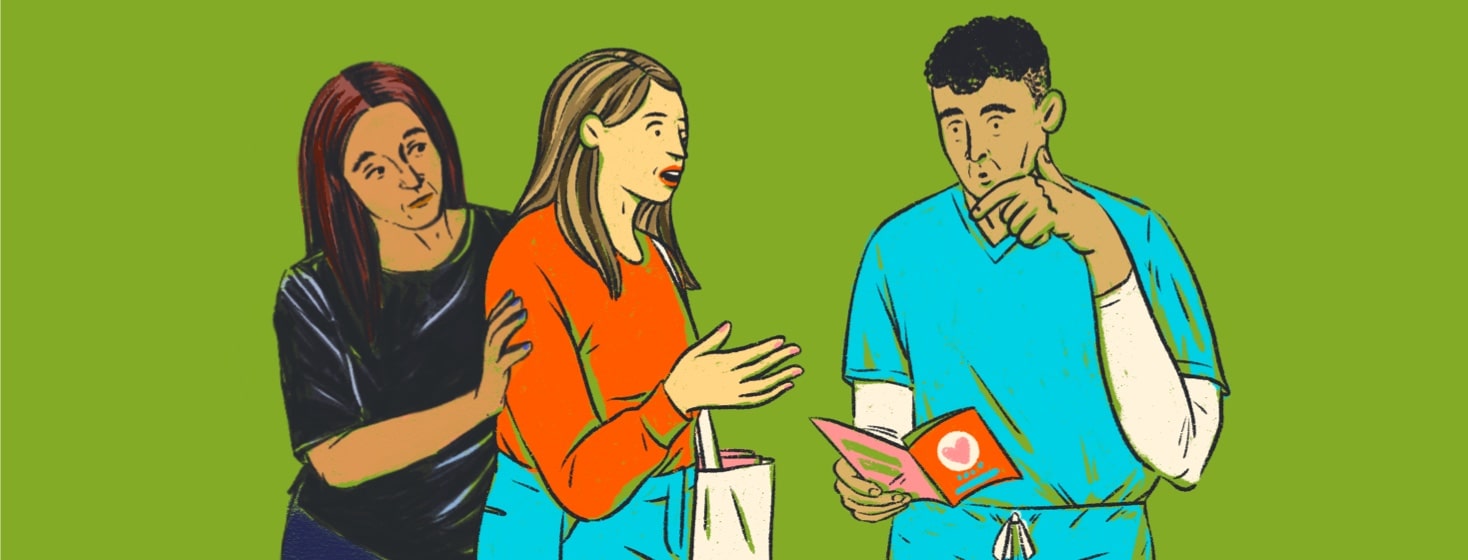How To Play Doctor ... Or Not
One of the hardest things about advocating for a patient with a rare disease is the uncertainty of the information that we want to share. Only about 14 in every 100,000 people have myasthenia gravis (MG). For most of those, standard blood tests tell the tale. But in about 10 percent of the cases there isn’t a clear lab report to start the process of diagnosis. Even neurology specialists may have limited experience with various forms of the condition. We live with MG every day in a way that our practitioners cannot.1
Accessing reliable information
That’s why patients and advocates often search for a lot of information on their own. There’s an abundance of shaky information available — some hearsay, unsubstantiated web posts, people advocating for unproven cures and some provided by people who are simply naive. A lot of this is unscientific or downright dangerous, and there isn’t a good way to sort them out.
But with effort and time, even untrained patients and advocates can access reliable research about the latest research on myasthenia gravis. But that can actually put them in an awkward position. The doctor is likely to have 10-12 years of training, but the patient and advocate may have spent more hours with the literature about MG than the professional. And some doctors really don’t feel comfortable with that! That’s the experience we’ve had — for good and ill. We’ve struggled to figure out how to steer office conversations toward new information.
Hitting a brick wall
We hit our first brick wall during my husband’s initial crisis. We did not know that he had MG at the time, but had been advised to get testing done by his eye doctor. He was very sick with something that looked like pneumonia to the ER. They treated him with Levaquin(R) (levofloxacin), but he just kept getting worse. (Levaquin treats bacterial infections, not autoimmune flares.) I repeated the eye doctor’s suggestion to the resident-in-charge.
The result was really awkward: "If he had that, he’d be dead by now." I had really hit a nerve. Hubby did not improve at all until they gave up on Levaquin. But it wasn’t my lack of tact that did it. The attending doctor made the (wrong) assumption that hubby had an antibiotic-resistant infection and changed the drug.
Six months and two crises later, we finally got to a neurologist who was willing to admit what she didn’t know. She bumped us up to her supervisor, who began the standard series of tests. Unfortunately, hubby is seronegative. That means the standard blood tests couldn't tell us what was wrong. He got firm results from a single fiber EMG, a nerve test that is done in a few large medical centers. As with many MG patients, he was treated before he was diagnosed and managed a slow, sporadic road to improvement. But even then there were significant setbacks along the way.
Linked conditions
In my husband’s Scandinavian family there are a number of genetic conditions (HLA DRB1*15:01) . Researchers suspect they are "linked" - found in the same families or even the same patient. But the research evidence is still pretty thin. I’ve listed some papers at the bottom of this article, but none of them is really conclusive enough to use as evidence if your doctor is convinced they know what’s going on. That's why tact is really important.2-4
Here's another example of information that we had to introduce very carefully into our discussions. When Gary was hospitalized for his second crisis they gave him heparin. He ended up with nine near-fatal, heparin-induced blood clots. The genetic connection isn’t widely known, and virtually no one in that hospital was aware of the link at the time. He was treated quickly. Luckily, the doctor in charge was willing to believe the condition was related to the heparin and didn’t leave him on anti-clotting drugs for the rest of his life!5
A few months later a Scandinavian friend with MG was feeling ill after a stay in the hospital. We told him our story. He was lucky enough to have a doctor who listened, and brought him back in for the right scans. He was treated for 13 pulmonary embolisms in time to save his life. The doctor would never have thought to look without that tip.
We shouldn't have to research - but we do
We shouldn’t have to be our own medical librarians. There is a real danger to that, even beyond the miffed feelings of a good doctor who is trying hard. You risk the kind of response we got from a neurologist who was faced with a vague, seronegative diagnosis: "Lucky you!" But we also ran into an ENT who immediately recognized the gene group and asked if we had done genetic testing.
I don’t have a lot of wisdom for those folks who want to urge their busy doctors to look at pending research. If your doctor is affiliated with a major medical or research center, there are probably sources they can tap quickly. But many folks reading this will not have access to that sort of resource. In our original diagnostic journey in Detroit we got a second opinion from Mayo Clinic. I’m not sure that most people’s primary care doctor would reach out that far.
Patients should have ways to network for the diagnoses we need. Insurance certainly doesn’t encourage that. Novices might never be exposed to the types of papers I’ve linked below - and shouldn’t have to be. But they should be able to suggest that their doctors do so without being perceived as a pest.
Perhaps people in this MG community have similar experiences or tips for talking to a doctor with tact that can help. A little commonsense psychology might be better than all of the referrals we can get. "Would you help us understand if this has any relevance to our situation?"

Join the conversation